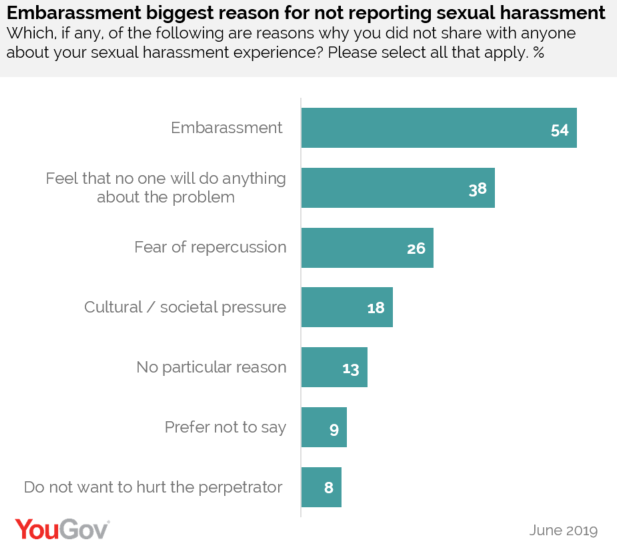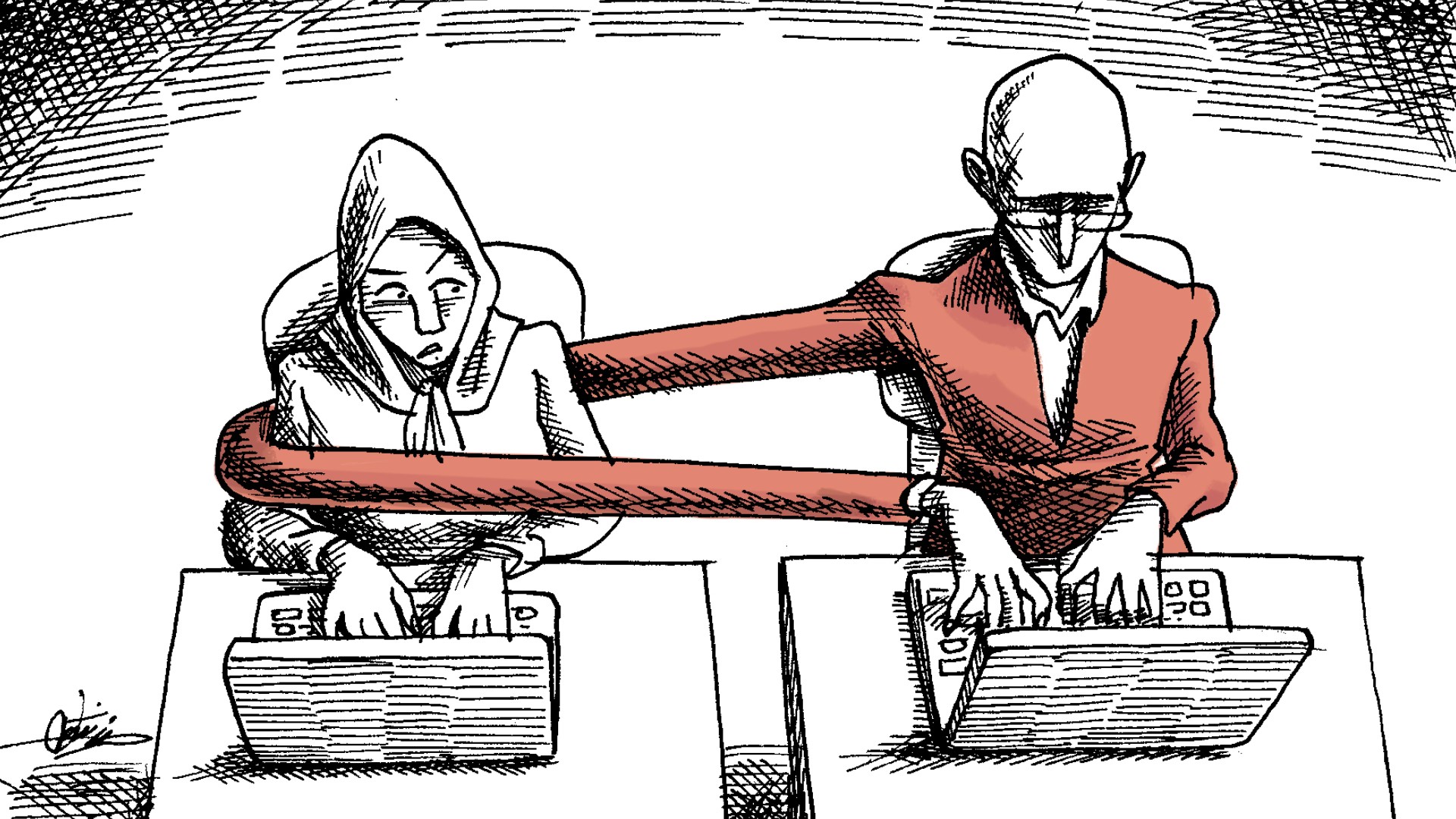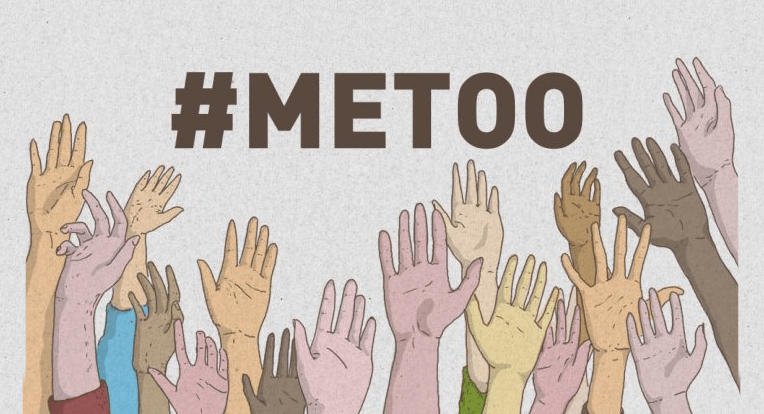
Picture this: one day, you take a shortcut through a dark alley on the way home from work. The place is a bit spooky, but you’ve come through here plenty of times before, so you’re sure it will be fine. However, this time, a crazy looking guy ambushes you in the middle of the alleyway.
“Your money or your life!” he yells, waving a knife in your face. You end up giving him your wallet, but even then you fear that he might stab you anyway. Luckily, you manage to distract him and escape the encounter without getting hurt.
You feel horrified, violated. Once you’re in a safe location, you immediately call the police. If they move quickly, maybe they can still catch him!
“Adoi… maybe if you didn’t look so rich, you wouldn’t have been robbed,” says the police officer. “If you’re wearing such expensive looking clothes in public, then you shouldn’t be surprised if men want to take advantage of you.”
Sounds crazy, right? But this type of experience is familiar to women all across Malaysia.
What’s With All the Victim Blaming?

Just last week (April 2021), our Ministry of Health (MOH) got slammed online for publishing an article called “Emotional Impact on Sexual Harassment Victims” that — among other things — claimed that “physical attractiveness” is one of the causes of sexual harassment.
Below are some of the more memorable lines:

Putting aside the bad English (although that’s embarrassing enough already considering that this is supposed to be an official government publication), the whole article was filled with the same old victim-blaming garbage we’ve seen a thousand times already.
Can you imagine if they started talking about other crimes like this? What do you think would happen if the police started saying things like “Maybe if you didn’t dress so fancy, you wouldn’t have gotten robbed” or “If your car didn’t look so nice, people wouldn’t want to steal it”?
Although it was quickly taken down, this article is only the latest troubling sign of just how little those in power seem to care about sexual abuse.
Doraemon Doesn’t Deserve This

I’m sure we all still remember last year’s infamous “Doraemon” incident. In March 2020, the Women and Family Ministry was forced to apologise for posting a series of “household happiness” posters that offered amazing advice such as “avoid nagging your husband” and “talk like Doraemon”.
Needless to say, many people were not amused.

This isn’t even the first time that our government officials have shown themselves to be wildly out of touch with reality. In July 2019, PKR senator Mohamad Imran Abd Hamid suggested a new sexual harassment law to protect men from being “seduced” into commiting crimes such as rape.
“I propose a Sexual Harassment Act to protect men from the actions, words and clothing of women, which can cause men to be seduced to the point they can commit acts such as incest, rape, molestation, (watching) pornography and likewise,” he said.
He added that such a law was necessary because “due to what women wear, we are seduced and end up breaking the country’s laws and face prosecution.”
Naturally, his suggestion caused a massive uproar even among even his own party. PKR president Anwar Ibrahim rejected the proposal, saying that it was “absurd and an insult to women”.
The All Women’s Action Society (AWAM) further condemned Imran’s suggestion, pointing out that “it is the perpetrator who must take responsibility for their own actions. The idea that victims are unable to access justice or demand some form of redress after undergoing such a dehumanising experience simply adds to the creation of a culture of fear and violence.”
While it’s good that the “Doraemon” posters and Imran’s “men’s protection” laws were quickly taken down, the fact that these kinds of statements were made in the first place is still rather disturbing.
Aside from making Malaysia look like a laughing stock on the world stage, such behaviour raises an important question: are our government officials really so uninformed, so ignorant, so naive, or are they actively trying to force women back into the kitchen?
It’s Not Just the Government Either

Unfortunately, it’s clear that the problem of sexism doesn’t stem solely from our government.
Even as I was writing this article, local Twitter activist @TerryDieHeiden started a media storm by blowing the lid on so-called “period spot check” incidents occurring at Malaysian schools — a reference to how some ustazah (religious teachers) would physically check their students’ private parts to confirm whether or not they were on their periods.
His tweet received hundreds of responses from both male and female students who not only confirmed that it was still happening but also recounted their own personal experiences with sexual harassment in school.

Writer and fashion model Nalisa Alia Amin also played a key role in bringing this disturbing issue to light.
“I experienced it myself when I was in university. So I started posting screenshots of people’s stories on my Instagram just for awareness, and suddenly it snowballed from there,” she said, adding that she had already received close to 100 confessions in her DMs thus far.
These viral tweets have already led to an uproar, with many NGOs such as AWAM, Sisters in Islam (SIS) and Pertubuhan Pembangunan Kendiri Wanita dan Gadis (WOMEN:girls) calling for an investigative task force to collect evidence and put a stop to this abuse of power.
“This alarming culture of abuse of power is not new in Malaysia, but when they are happening in our school system, all of us – the government, authorities, parents and society – need to sit up, take notice and take action,” they said in a joint statement.
“These are degrading and abusive treatments that violate the physical body and personal boundaries all without consent, made even worse by the fact that most survivors here are or were underaged when these incidents happened.”
Time to Talk Numbers

Despite all of this proof, there are still some who will claim that the issue of sexual harassment is being blown out of proportion. “It’s just a few cases!” they’ll insist. “The media is just making it look like a big deal so that they’ll get more clicks!”
Unfortunately for them, the numbers tell a very different story. According to a survey by the Women’s Aid Organisation (WAO), more than 50% of Malaysian women have experienced gender discrimination of some form.
In 2020, the World Economic Forum released a Global Gender Gap Index which ranked Malaysia as number 104 out of 153 countries — putting us behind almost all our neighbours including Indonesia, the Philippines, Thailand and Vietnam.
In other words, there’s still a big gap between the way men and women are treated. The differences can be clearly seen not only in the workplace but also in our personal lives.
The 2019 YouGov Omnibus Survey found that the most common form of sexual harassment in Malaysia is sexual assault (59%) followed by “verbal comments of a sexual nature” (48%), flashing (29%) and unwanted sexual photos or videos (20%).
“Due to a lack of official statistics surrounding sexual harassment in Malaysia, we wanted to find out how prevalent the issue was. What is surprising is the number of sexual harassment cases that go unreported, and the reasons behind it,” said Jake Gammon, Head of Omnibus APAC at YouGov Omnibus.
According to their findings, only 53% of victims ever tell anyone about their experiences. And even in those cases, most of them would rather tell their friends or family — only 15% reported their sexual harassment to the police.
In this age of #MeToo, more and more people are shining a light on the issue of sexual harassment. Unfortunately, even with that, many Malaysian victims today are still too afraid to speak out about the trauma they experienced.
Why Does Sexual Harassment Happen?

While many people assume that sexual harassment is caused by lust, AWAM has a different explanation. At its core, sexual harassment isn’t even really about sex at all — it’s about power and control.
In order to understand why sexual harassment happens, we need to look at several factors behind this alarmingly common crime:
1) Unhealthy Patriarchal Culture
When a man grows up being told (intentionally or otherwise) that women are inferior, they are more likely to believe that such behaviour is normal. They harass women because their self worth is tied to their perception of manliness. In other words, they harass women in order to feel more “macho” and powerful.
2) Insecurity
While some men harass women in order to make themselves feel better, others do so to make women feel worse. Insecure individuals who feel threatened by a woman may see their harassment as a way to “put women in their proper place” or punish them for “being arrogant” (which usually boils down to “she makes me look bad and I don’t like that!”).
3) Lack of Understanding/Education
The third potential cause of sexual harassment is basically ignorance. These are the guys who act inappropriately because they either have bad social skills or don’t actually understand why such behaviour is bad. In such cases, simply making it clear that their behaviour is unacceptable may be helpful — although if their behaviour persists, then it’s likely that they’re simply using ignorance as an excuse.
Whatever their reason, the fact remains that sexual harassment is a crime that should be taken seriously. Ignoring their actions or giving excuses such as “boys will be boys” just teaches harassers that they can get away with behaving that way because it’s just fulfilling their “natural” needs.
Why Is Sexual Harassment Such a Big Problem?

If you’re one of those people who try to insist that sexual harassment “isn’t a big deal” or that “people are just being too sensitive”, then I’m really sorry, but I honestly don’t have the time or energy to explain basic human empathy to you.
Frankly speaking, if you’re an adult who still thinks like that, I’d advise you to turn off your computer, step outside your parent’s basement and start talking to actual human beings for a change. When was the last time you touched some grass?
However, even putting aside the humanitarian aspect of it, sexual harassment is a real problem with real consequences — not just for the person being harassed, but for everyone else around them. Some of the major effects of sexual harassment include:
1) Emotional and Physical Issues
Even putting aside more violent incidents such as rape, sexual harassment can cause a wide variety of health issues. Victims can suffer not only mental issues such as decreased confidence and low self esteem but also physical issues such as loss of sleep, weight fluctuations, nausea and so on. These effects can linger for many years, and those who were abused as children are often still traumatised as adults.
2) Professional and Financial Issues
The fear of sexual harassment can ruin a victim’s job performance and career trajectory. Someone who’s been sexually abused as a child may find it more difficult to get a job due to their trauma, while those who are already adults can suffer from other setbacks such as being passed over for promotions, being labelled a troublemaker and other forms of retaliation if they try to speak up.
3) Decreased Productivity
Simply put, an employee who’s constantly worried about being sexually harassed is an employee who’s stuck in a toxic environment. This can cause many negative effects such as employees being more likely to quit, causing a high turnover rate for the company. Not only will this force the employer to pay more in terms of hiring and training costs, but having such a toxic environment will also make it much harder to attract any top talents.
4) Reputation
In the aftermath of the #MeToo movement, being known as a person or company that practices such toxic behaviour can be absolutely devastating. A highly publicized case of workplace sexual harassment can ruin a company’s reputation, resulting in loss of business and customers. Even outside the workplace, being called out for sexual harassment on social media can and has had serious consequences for the harasser — after all, who wants to hang out with a creep?
5) Legal Punishment
Although some will claim that it’s “just a joke” or it’s all in “good fun”, sexual harassment is in fact a crime. Several types of sexual harassment (such as sexual assault) are covered under Section 354 of the Penal Code with punishments of up to 10 years imprisonment or with fine and/or whipping.
What Can We Do About It?

If you or someone you know is experiencing sexual harassment, here are a few steps that you can take to resolve or help out with this issue:
1) Tell
Don’t just try to ignore it. Make it clear to the harasser that their behaviour is not welcome.
2) Record
Having a record of the incident is important, especially if it’s an ongoing incident. Try to record details such as identity, time and date, nature of the harassment, etc.
3) Support
Don’t try to go at it alone. Reach out to friends or family or contact organisations such as AWAM, WAO and SIS for help.
4) Report
Filing a police report is a crucial step to bring your harasser to justice. If you’re afraid of retaliation, the organisations listed above can accompany you to ensure that you receive the help you need.
Working Towards a Kinder, Better Future

Although our country has progressed in remarkable ways, it is clear that when it comes to sexuality, many Malaysians still have mindsets that belong in the last century.
To become a mature and developed nation, we Malaysians must take strong steps to improve our sexual education. We need to stop blaming the victims and instead make it clear that this kind of behaviour cannot be tolerated in our society.
Otherwise, I fear that we will forever remain on the bottom rug — just another Third World culture pretending to be a First World country.








